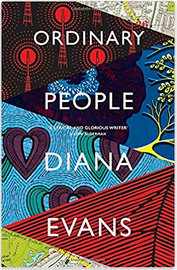A story from The Guardian, “Book clinic: which current authors produce the most magical prose,” uses Updike as the lead-in and apparent benchmark for prose that sparkles. As the subtitle suggests, “The supernatural, witchcraft or sex can be spellbinding, while others conjure gold from the everyday human struggle.”
Writer Amanda Craig begins with a question from a Beijing reader: “John Updike described himself as the sorcerer’s apprentice. Who today delivers the most magic in their prose?”
She responds, “Magic may be evoked in many ways and Updike did it both in the sense of mixing the mundane with the supernatural (The Witches of Eastwick) and in conjuring contemporary fiction whose realism is threaded through with hypnotic lyricism (the Rabbit novels, Couples, etc).”
 She recommends Philip Pullman’s His Dark Materials, AS Byatt’s Possession and short stories, and then, comparatively, two others:
She recommends Philip Pullman’s His Dark Materials, AS Byatt’s Possession and short stories, and then, comparatively, two others:
“If it is Updike’s realist magic you are after, then Meg Wolitzer is, like him, a lyrical chronicler of love and marriage – but unlike Updike, brilliant at female characters as well as male ones. Her descriptions in The Interestings and The Female Persuasion of loneliness, love, growing maturity and reading itself evoke quotidian joys and sorrows with humour, generosity and hope.
“Diana Evans is another superb domestic realist. Her new novel, Ordinary People, contains some of the best descriptions of happy and unhappy sex I’ve read since Ian McEwan’s Atonement. She writes about black south Londoners struggling with young families, ambition, adultery and disappointment with the wry insights Updike gave to his white east coasters.”
